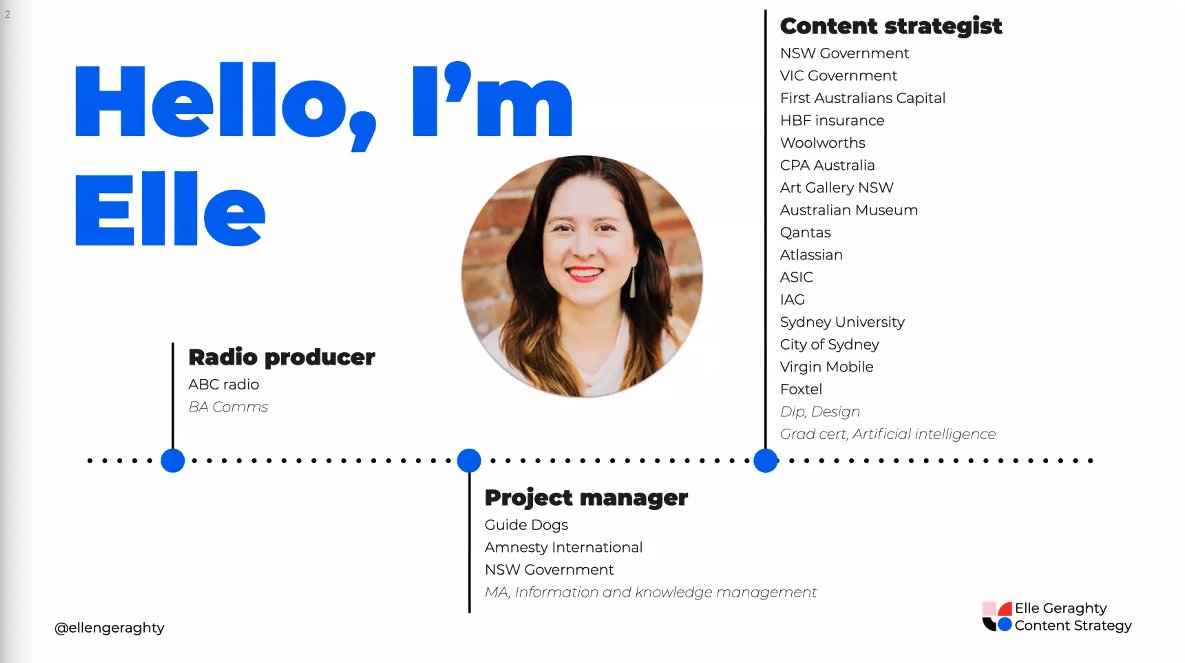
Our next speaker is Kim Chatterjee - Design Lead at CorDiFio Health
—
Designing for Dignity
#uxaustralia #uxa2021
—
Designing for Dignity
#uxaustralia #uxa2021
Kim has spent the last couple of years working on behaviour change programs.
There's so much danger working in social impact and development projects of designing with assumptions.
As a UXer Kim gets hit with 'Sonder' — the strangers around you have full vivid lives around you.
That realisation can hit you at any moment — they have complete history and they're living their lives each day and we get to see into that when they intersect with us.
That realisation can hit you at any moment — they have complete history and they're living their lives each day and we get to see into that when they intersect with us.
In the Phillipines a drama group came to campus and got Kim and the group to walk around as different people — when they got everyone to act like an 'old' person everyone acted in a hunched over caricature.
The group stopped everyone and asked them to think about a person about their achievements, their life and everything they had experienced and immediately the participants walked around with head high in pride.
Dignity: being worthy, honoured, esteemed.
There's some assumptions that you need to have done something to be worthy of dignity.
Kant put forward that dignity is inherent to each human.
There's some assumptions that you need to have done something to be worthy of dignity.
Kant put forward that dignity is inherent to each human.
Everyone who's trying to solve a problem is solving for a different level of Maslow's hierarchy.
It's often hard to remember that dignity sits at the esteem level.
It's often hard to remember that dignity sits at the esteem level.

"See me."
Kim will be sharing a few stories about where she's seen it applied well.
Kim will be sharing a few stories about where she's seen it applied well.
At the Orting Food Bank Kim noticed how well everything was set up like a nice grocery — and when people came to pick up their items they were able to pick anything without anyone looking over their shoulder judging the items they selected.
In Tanzania they were looking at changing the cook stoves to stop smoke inhalation for women — one of the ways they were able to connect with the women was hearing how they wanted to smell fresh at the end of the day, not like smoke, so they could meet their friends.
In Mozambique running a design sprint with insurance teams — they were worrying about price points, but 30 seconds into a conversations they realised the market could afford their products, they just didn't have anything worth buying.
When someone's experienced homelessness, once they get allocated community / subsidised housing there's a large portion who can't afford to furnish the home and end up homeless again.
Kim worked with Humble Design who furnished homes for people — she noticed they didn't have groceries and what they found out was the family didn't have all the peripherals to prepare groceries and when they delivered them they heard "Now I can..."
In Zambia a mobile payments company was setting up a way to bank and they found that it gave access to a man who begged on the corner — he said "Finally I can start saving" instead of having to hold onto his cash.
We can all be part of this process where we setup the environment for people to be able to take the next step themselves!
Thanks so much Kim!
@threadreaderapp unroll please!
• • •
Missing some Tweet in this thread? You can try to
force a refresh








